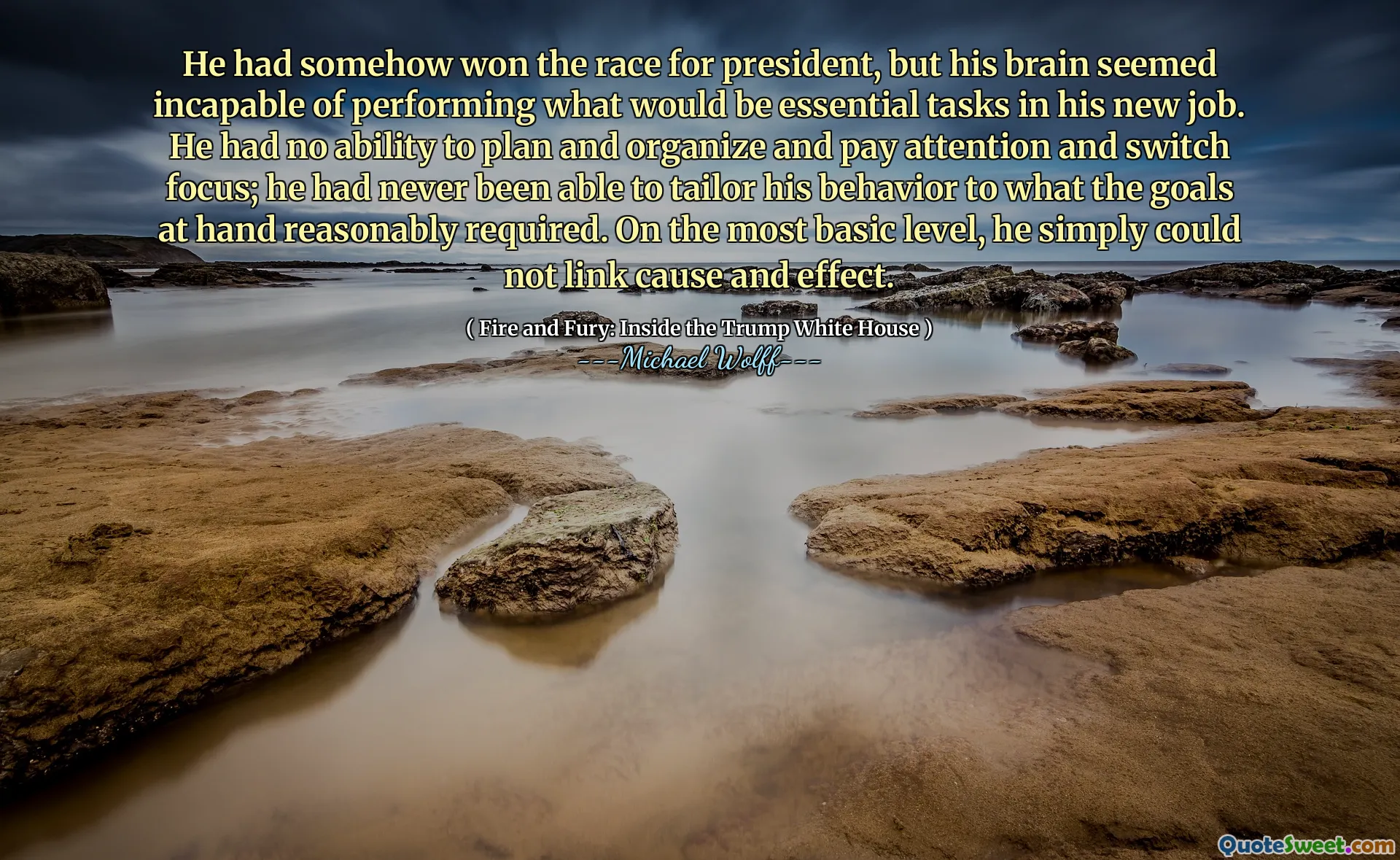
He had somehow won the race for president, but his brain seemed incapable of performing what would be essential tasks in his new job. He had no ability to plan and organize and pay attention and switch focus; he had never been able to tailor his behavior to what the goals at hand reasonably required. On the most basic level, he simply could not link cause and effect.
The quote illustrates a profound disconnect between winning the presidency and the essential cognitive skills necessary for effective governance. It emphasizes that despite achieving the highest political office, the individual faced significant challenges in performing key responsibilities. Critical functions like planning, organization, and focus appeared to be severely lacking. This suggests that success in political campaigning does not automatically translate into the competencies required for leadership.
Furthermore, the quote highlights a fundamental issue in understanding cause and effect, which is crucial for decision-making in a high-stakes environment like the White House. The inability to adapt behavior to meet goals points to a deeper cognitive struggle, raising questions about how such a person can navigate the complexities of leadership. Overall, it underscores the gap between political victory and the practical realities of governance.











